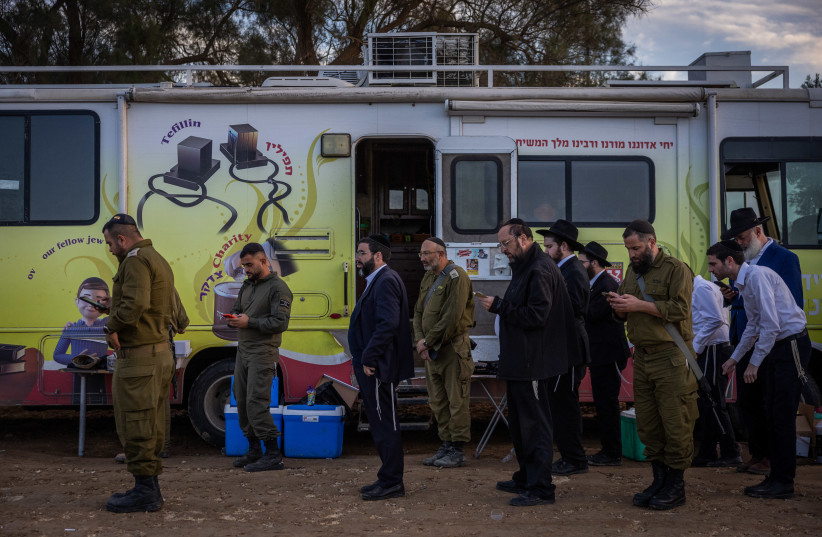Netanyahu requests delay for IDF haredi draft deal after deadline passes
In an ongoing legal and political drama, Prime Minister Benjamin Netanyahu took an extremely rare step and filed a response to appeals to the Supreme Court demanding that Israel’s haredi men enlist for military service.
The prime minister requested an additional 30 days to come up with a solution to the impasse, which could potentially destabilize his government if its two haredi parties, United Torah Judaism and Shas, do not accept his decision.
The prime minister broke with precedent, which dictates that the attorney-general must present the government’s position to the court.
This, along with the multiple delays last night and on Thursday, were a clear sign that Attorney-General Galit Baharav-Miara refused to ask herself for the 30-day extension which Netanyahu is seeking.
This also almost certainly dooms Netanyahu’s request, though the court may give him a much shorter extension.

Netanyahu argued in his response that while the government initially gave itself nine months to come up with a solution (July 2023 – March 2024), in practice it only had three months, due to the outbreak of the October 7 war.
According to the prime minister, a “short period of time” was necessary in order to “conclude the professional staff work” and set up specific frameworks that will enable haredi soldiers to maintain their lifestyle during their service, as well as enable yeshiva students whose “vocation is Torah” to continue studying.
Baharav-Miara on Thursday at 2:08 p.m. requested an additional two-hour extension to update the High Court of Justice regarding the government’s position on the issue of drafting Haredim into the IDF or national service.
Baharav-Miara justified asking for the additional two hours, citing that the court had not actually formally ruled on the initial late-night request for an extension until 2:00 p.m.
Further, the attorney general said the Defense Ministry had just sent her its view on the relevant issues. To incorporate those updates, a couple of additional hours would be needed.
In addition, she said that the government still had not informed her of its final decision about what policy to present.
Adjustments still not in place since summer ruling
The balance is whether the High Court orders a universal draft that would finally include Haredim and could cause the government to fall, whether a compromise can be struck, or whether the court will grant an additional delay on the issue.
The government was originally due to file its position with the court at the beginning of this past week.
However, the court granted an extension until Wednesday.
Despite the extension, just before the deadline expired at midnight, Baharav-Miara asked the court for another extension until 2:00 p.m. Thursday.
She explained that the government still had not decided and that a last-minute change in her draft still needed to be reviewed by key government stakeholders.
Her leaked draft indicated she would ask the court to order a universal draft but to grant a delay of any financial sanctions against violators of the draft until sometime in June, when the current academic year ends.
The attorney general said that such an extension was necessary to allow students and institutions to prepare for the significant changes in their lives and operations that would occur once the new draft went into effect.
Despite this sentiment, the entire government has known since the summer that a new bill had to be formulated and presented to the court by this week.
Adjustments still not in place since summer ruling
The court struck down the old policy as unconstitutional over the summer but granted several months to make exactly the adjustments for which Baharav-Miara now asks for additional time.
In fact, the government’s plan until October 7 was to pass a Basic Law granting a total exemption to Haredim as well as to take other additional measures to prevent the court from being able to veto the exemption.
Normally, a major event like the war since October 7 would be a strong argument for the government to be given more time to discuss the issue, given how busy it has been.
But due to the war’s transformation of public opinion into demanding a much larger army to protect the borders as well as the 1,500 Israelis who have died, the war has actually strengthened the public’s will to demand greater Haredi involvement in the IDF or national service and may embolden the court as well.





Comments are closed.